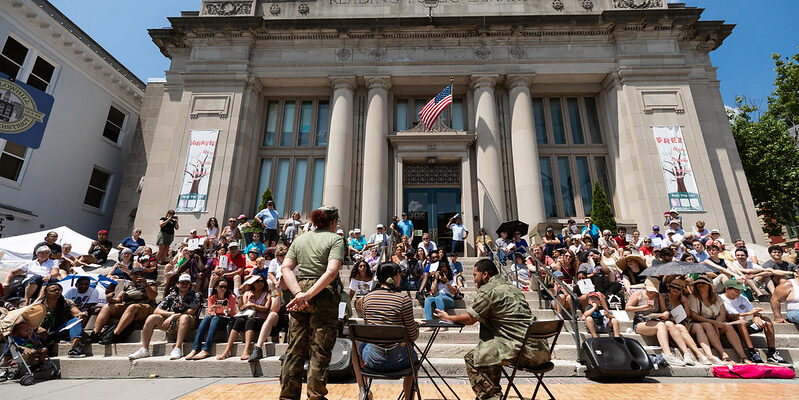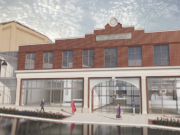Daniel Egusquiza, executive director of community development organization Barrio Alegría, is used to a certain kind of narrative in his home city. “Nothing works in Reading,” is something he hears a lot, or there’s the all-time favorite: “I can’t wait to get out of Reading.”
But now, a grant from the Center for Community Progress will bring fellows from two other cities — Fitchburg, MA, and Montgomery, AL — to Reading. They will learn about the powerful programs at work through Barrio Alegría. Barrio Alegría representatives will then travel to those cities, bringing best practices for community engagement and creative placemaking home to Reading’s South of Penn neighborhood.
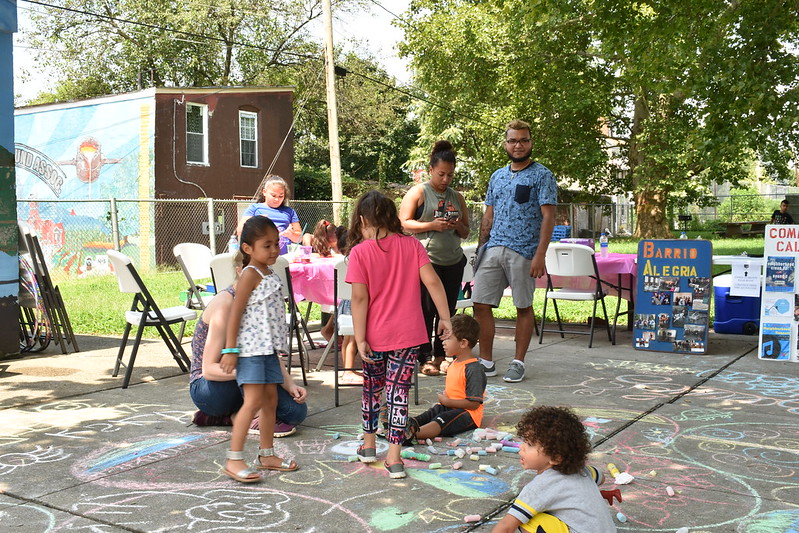
A member organization of the South of Penn Task Force coalition, Barrio officially incorporated five years ago, but its work goes back to 2009. The group began as a dance collective running six-month programs designed to engage neighbors and reclaim neglected spaces.
“We just look for regular folks,” says Egusquiza of Barrio participants then and now. “Do you have two left feet? That’s the person we’re looking for. Have you never acted before? Perfect.”
Successful community-built choreography projects grew naturally into theater events and then photography programs. The work eventually expanded from placemaking events into grooming local leaders.
Pennsylvania is very welcoming, and Pennsylvania is very relentless…If we’re knocked down, we don’t stay down.Daniel Egusquiza, Barrio Alegría
“We do leadership development for folks who don’t self-select as leaders, but are doing leadership work anyway,” explains Egusquiza.
He points to a project that launched five years ago in partnership with the Reading Public Library. The institution had what he calls “a perception issue with the community,” a majority of whom are immigrants; more than 60 percent are of Latinx descent.
Barrio did a study on the site and discovered one big reason locals weren’t using the library.
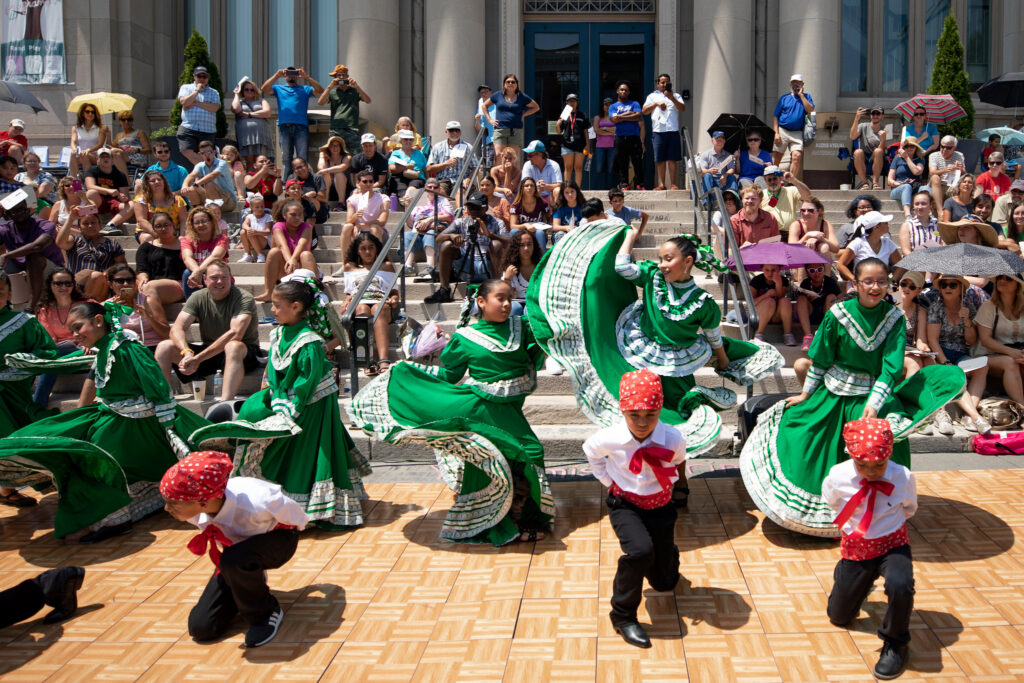
“People didn’t feel like this main library building was made for them,” recalls Egusquiza. It’s a Carnegie classical Greek-style building, reminiscent of places that traditionally are not welcoming. “That’s the way that government buildings are built in Latin America as well, so there was a healthy mistrust of buildings that look like that.”
Barrio couldn’t change the physical space of the library, but it could transform the psychological space. It hosted a community-driven public performance on the sidewalk out front, which drew about 300 people.
After that, everyone involved had claimed the space in a new way. A series of ongoing performances percolate there, including singing, theater, dance, and poetry.
Barrio mounts a performance there every year, each with its own theme, developed in partnership with community members. The inaugural performance highlighted immigrant stories; 2019’s show tackled family separation. The world took notice. The 30-person theater group was invited to perform at the National Museum of Puerto Rican Arts & Culture in Chicago, and in November, they’re invited to perform at the Central Library Oodi in Helsinki, Finland.
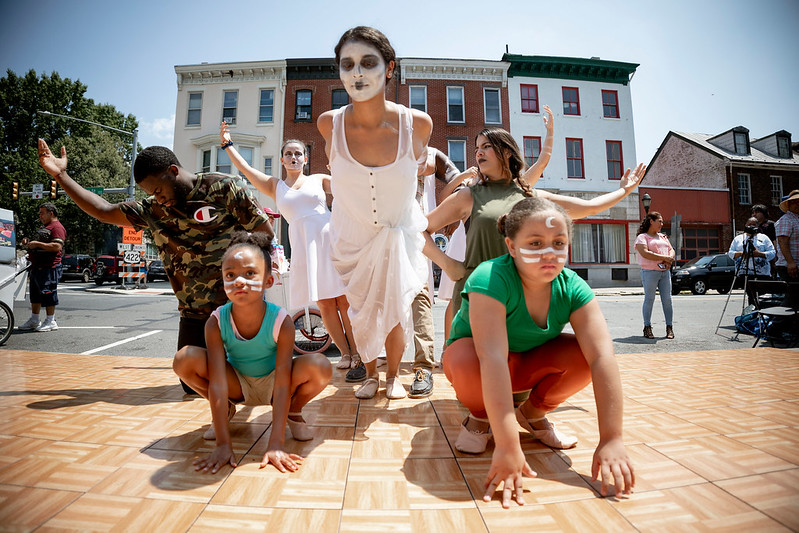
Initially, Barrio leaders thought security would be a top neighborhood concern, but as they began working with their “neighbor captains,” they learned that trash was the number one worry.
In 2018, an inaugural clean-up day drew about 10 people. For 2019, they got creative, launching a trash-collecting competition against the South of Penn Task Force, costumes and all. Ninety people showed up.
“Cleaning became this cool thing to do in Reading,” says Egusquiza.
This year, Barrio is challenging the city of Pottstown with a Marvel vs DC theme: Participants will dress up as superheroes from the rival comic-book universes.
The creativity doesn’t stop there. To discourage littering, Barrio hired a group of eight opera singers to hang around at littering hotspots. Whenever someone used the trashcan, the singers would burst into the Hallelujah Chorus. When trash hit the ground, it was “O Fortuna.”
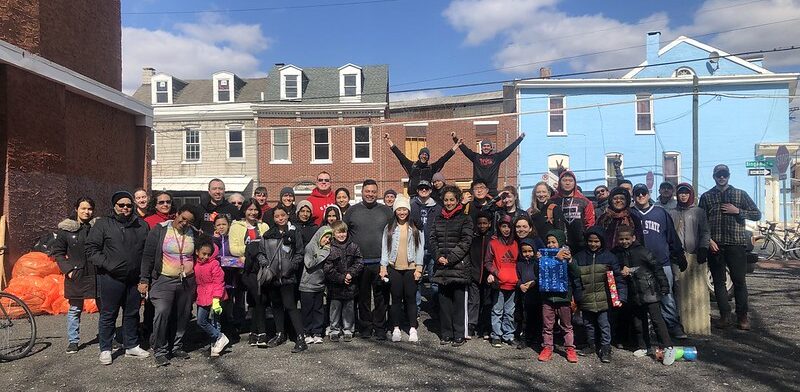
Now, thanks to Barrio, Reading joins the second national cohort of Center for Community Progress grantees. The prize includes $10,000 for programming, which Barrio will allocate with a “participatory budgeting model” that will allow neighbors to vote on how the dollars are spent.
Barrio will also welcome six fellows from the other winning cities, and send its own six fellows to Fitchburg and Montgomery (the Barrio fellows are Anthony Orozco, Morgan Thomas, Goldy Ghuman, Jose Garcia, Jeanette Buchanon, and Kaylee Carpinteyro).
Originally scheduled for April, the other fellows’ visit to Reading has been postponed until August because of the COVID-19 pandemic.
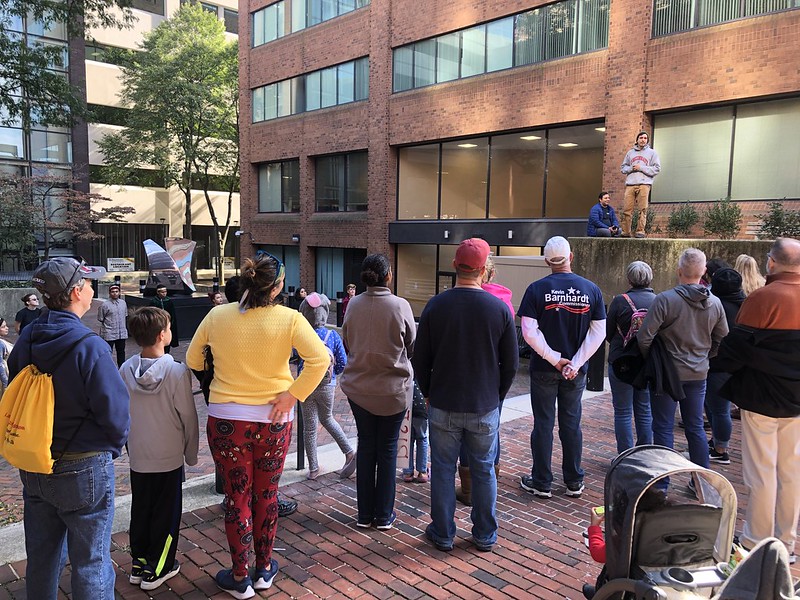
“We are keeping our spirits high!” says Egusquiza of life at Barrio since mid-March. The team is working from home, with online programming going live twice a day (10 a.m. and 4 p.m.) streamed from its Facebook and Instagram pages.
“We recognize that the way we engage with people is going to change, so we are trying to adapt,” the director adds. “We are really trying to make sure nobody feels isolated.”
“We were able to channel the spirit of Pennsylvania with this,” he says of the grant. Egusquiza does a lot of national and international traveling, but this state is his home, “because Pennsylvania is very welcoming, and Pennsylvania is very relentless…If we’re knocked down, we don’t stay down.”
ALAINA JOHNS is a Philadelphia-based freelance writer and the Editor-in-Chief of BroadStreetReview.com, Philly’s hub for arts, culture and commentary. You can visit her at her blog, where fiction need not apply.
